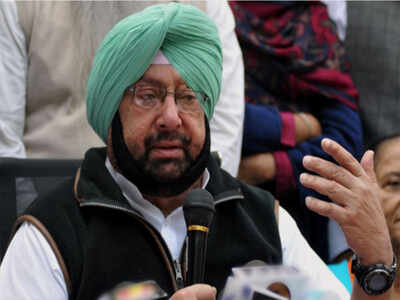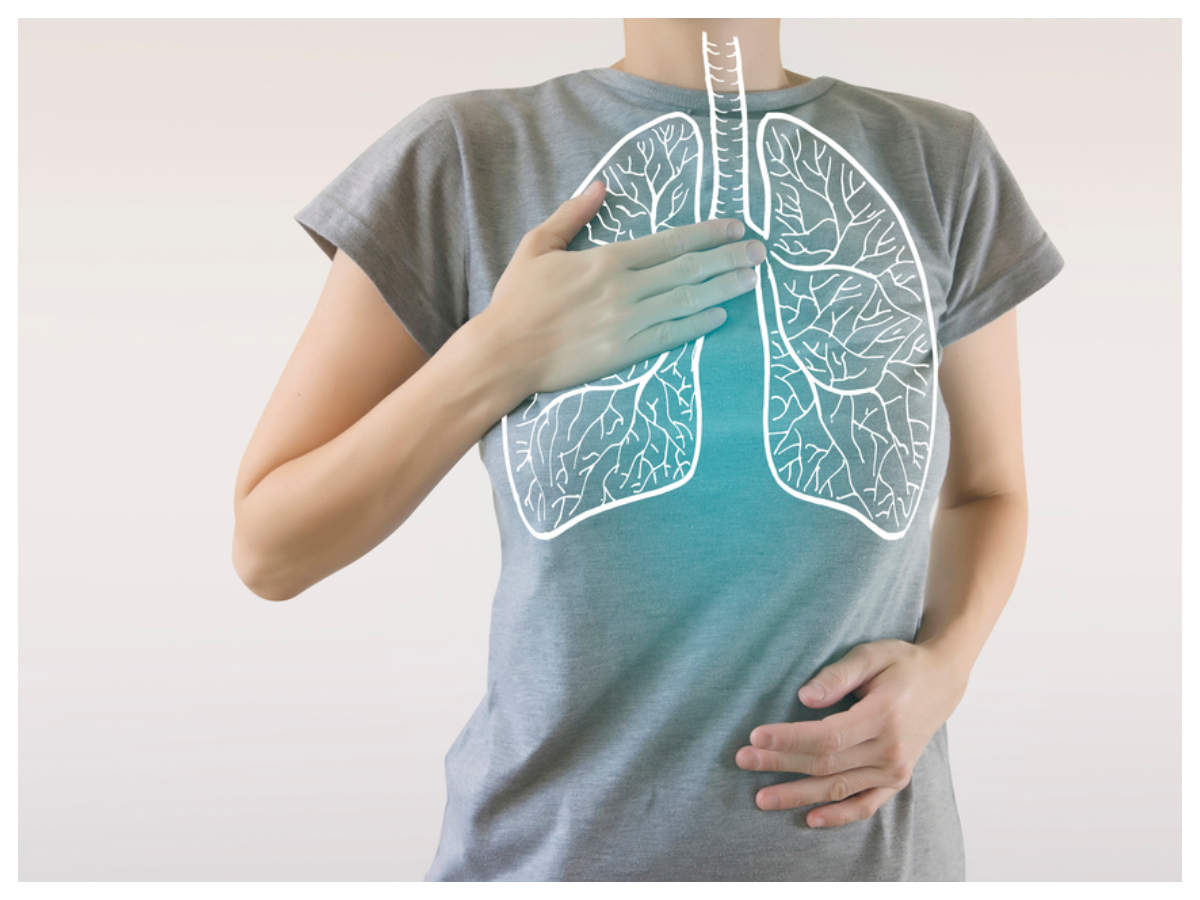High mortality due to co-morbidity, audit of Covid-19 deaths ordered: Captain Amarinder to Sonia Gandhi

CHANDIGARH: Punjab chief minister Amarinder Singh on Thursday told Congress president Sonia Gandhi that mortality numbers in the state were high largely due to co-morbidity and lack of health-seeking behaviour (patients come late to hospital).
Meanwhile, Amarinder said he had ordered detailed audit of every Covid-19 death by experts to understand and check the high mortality rate in the state, and the government was also strengthening its pandemic containment measures, under the guidance of an expert team.
In a video conference with his party leadership, Amarinder said the state government was being guided by a group of experts in handling the Covid crisis that included experts from PGI, John Hopkins University.
Despite the high mortality rate of 6.2%, the rate of growth of Covid-19 in Punjab was lower than India, with the cases doubling in 16 days against the national average of 9 days. In percentage terms, cases in Punjab had steadily declined from 2.57% of the total cases in India (as of March 31) to 1.22% in 3 weeks (till April 22), revealing effective containment of Covid-19 in the State, said Amarinder.
He cited the example of Nawanshahar as a case of effective containment that had been appreciated by the Centre. In Nawanshahar, which was one of the first hotspots in the country, all 18 treated cases (besides 1 initial death of Granthi Baldev Singh) had recovered and been discharged, and no case had been reported since 26 March 2020, he informed the meeting.
He said Punjab had to be compared with Kerala and Gujarat, which were also states with high NRI population. Punjab was doing significantly better than Gujarat, and in terms of cases per million populations, even lower than Kerala (9/million in Punjab vs. 12/million in Kerala), he pointed out.
With respect to testing, Amarinder said 7887 tests have been done so far, with regular testing facility of 400/day each at GMC Amritsar and GMC Patiala, 150/day at GMC Faridkot and IMTECH Chandigarh, and 60/day at PGI Chandigarh – 60/day. In addition, testing facilities are available in private hospitals.
On rapid testing, Amarinder said 3502 cases were tested before ICMR suspended such tests. The state currently has 10500 rapid testing kits supplied by ICMR, while 10000 had been ordered by the state government, with deliveries in progress. The government has also floated tender inquiry for another 50000 kits.
Meanwhile, Amarinder said he had ordered detailed audit of every Covid-19 death by experts to understand and check the high mortality rate in the state, and the government was also strengthening its pandemic containment measures, under the guidance of an expert team.
In a video conference with his party leadership, Amarinder said the state government was being guided by a group of experts in handling the Covid crisis that included experts from PGI, John Hopkins University.
Despite the high mortality rate of 6.2%, the rate of growth of Covid-19 in Punjab was lower than India, with the cases doubling in 16 days against the national average of 9 days. In percentage terms, cases in Punjab had steadily declined from 2.57% of the total cases in India (as of March 31) to 1.22% in 3 weeks (till April 22), revealing effective containment of Covid-19 in the State, said Amarinder.
He cited the example of Nawanshahar as a case of effective containment that had been appreciated by the Centre. In Nawanshahar, which was one of the first hotspots in the country, all 18 treated cases (besides 1 initial death of Granthi Baldev Singh) had recovered and been discharged, and no case had been reported since 26 March 2020, he informed the meeting.
He said Punjab had to be compared with Kerala and Gujarat, which were also states with high NRI population. Punjab was doing significantly better than Gujarat, and in terms of cases per million populations, even lower than Kerala (9/million in Punjab vs. 12/million in Kerala), he pointed out.
With respect to testing, Amarinder said 7887 tests have been done so far, with regular testing facility of 400/day each at GMC Amritsar and GMC Patiala, 150/day at GMC Faridkot and IMTECH Chandigarh, and 60/day at PGI Chandigarh – 60/day. In addition, testing facilities are available in private hospitals.
On rapid testing, Amarinder said 3502 cases were tested before ICMR suspended such tests. The state currently has 10500 rapid testing kits supplied by ICMR, while 10000 had been ordered by the state government, with deliveries in progress. The government has also floated tender inquiry for another 50000 kits.

Coronavirus outbreak
Trending Topics
LATEST VIDEOS
City
 COVID-19: Manned by around 20 women cops round the clock, police control room manages 2,500 calls per day in Nagpur
COVID-19: Manned by around 20 women cops round the clock, police control room manages 2,500 calls per day in Nagpur  COVID-19 lockdown: This West Bengal teacher finds unique way to impart education
COVID-19 lockdown: This West Bengal teacher finds unique way to impart education  Covid-19 in Lucknow: Girl on joyride loses cool, argues with cops
Covid-19 in Lucknow: Girl on joyride loses cool, argues with cops  On cam: Armed goons loot bank in Muzaffarpur amid lockdown
On cam: Armed goons loot bank in Muzaffarpur amid lockdown
More from TOI
Navbharat Times
Featured Today in Travel
Quick Links
Kerala Coronavirus Helpline NumberHaryana Coronavirus Helpline NumberUP Coronavirus Helpline NumberBareilly NewsBhopal NewsCoronavirus in DelhiCoronavirus in HyderabadCoronavirus in IndiaCoronavirus symptomsCoronavirusRajasthan Coronavirus Helpline NumberAditya ThackerayShiv SenaFire in MumbaiAP Coronavirus Helpline NumberArvind KejriwalJammu Kashmir Coronavirus Helpline NumberSrinagar encounter
Get the app





